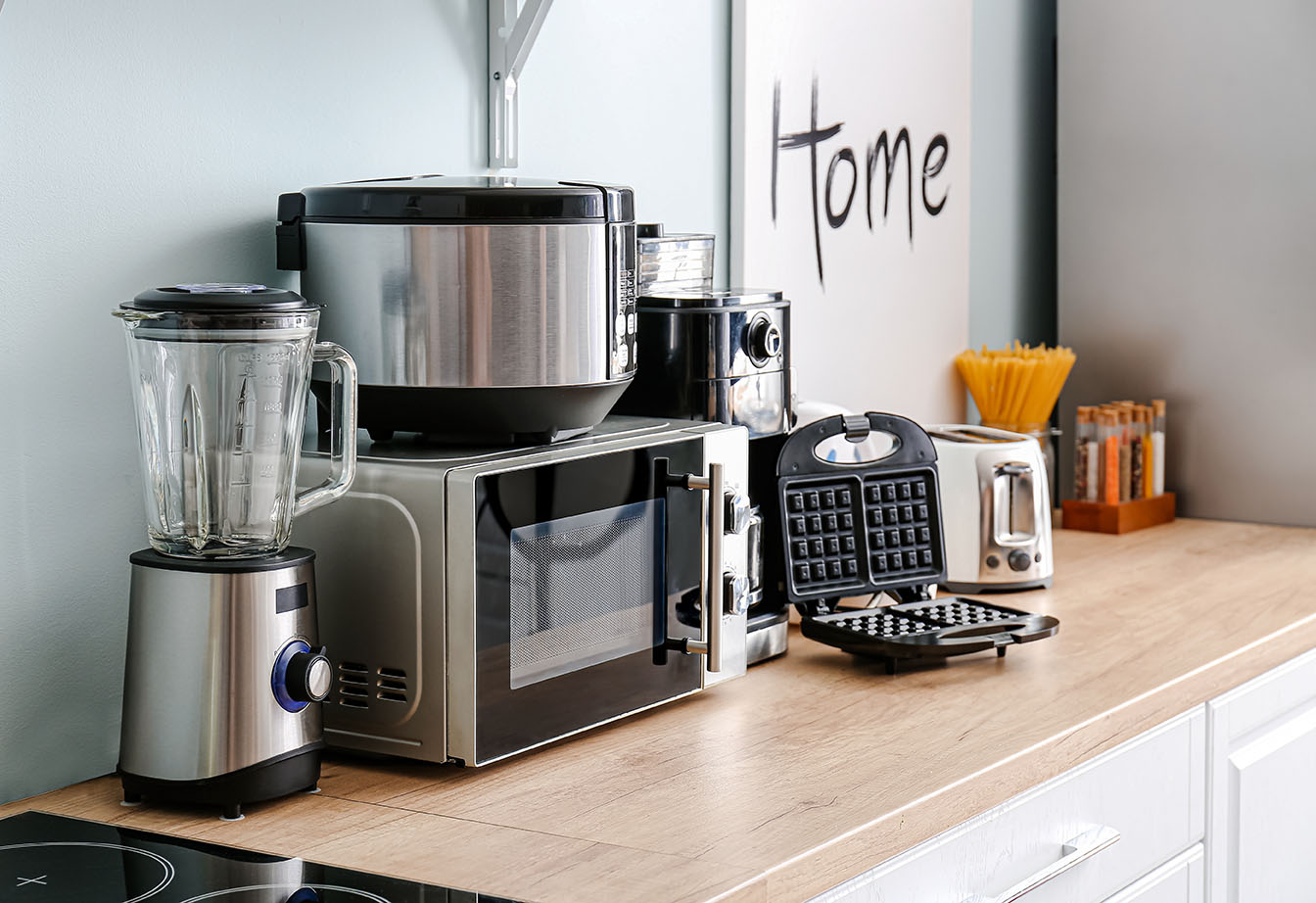

An appliance is a device that is used to perform a specific task, such as cooking food, cleaning clothes, or cooling air. Appliances are typically powered by electricity, but some may also be powered by gas or other fuels.
Appliances are an important part of our everyday lives, and they have become increasingly sophisticated over time. For example, modern refrigerators are now able to adjust their temperature settings automatically, and some washing machines can even detect the type of fabric that is being washed and adjust the washing cycle accordingly.
In science, appliances are often used to perform experiments or to measure physical quantities. For example, a scientist might use a microwave oven to heat a sample of water in order to measure its specific heat capacity.
The appliance store had a sale on all appliances.

Noun: appliance.
Adjective: appliance-related.
Verb: to appliance (to equip with appliances).
Adverb: appliance-wise.
The word "appliance" comes from the Middle English word "apliance" which means "equipment" or "gear." The Middle English word "apliance" is derived from the Old French word "apliance" which means "to fit or make suitable.".
What appliances do you have at home?
Question:
Define the term "appliance" in the context of electricity and electrical devices. Explain how electrical appliances work and the importance of safety precautions when using them.
Answer:
Address
Developing Experts Limited
Exchange Street Buildings
35-37 Exchange Street
Norwich
NR2 1DP
UK
Phone
01603 273515
Email
hello@developingexperts.com
Copyright 2025 Developing Experts, All rights reserved.